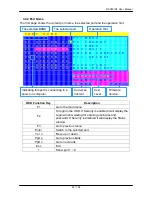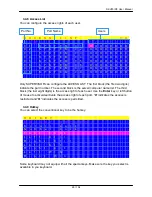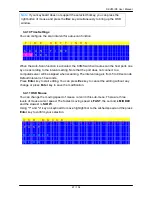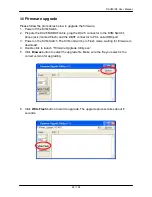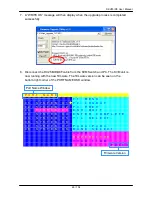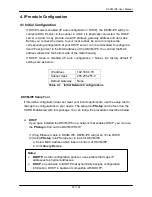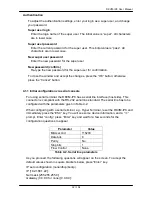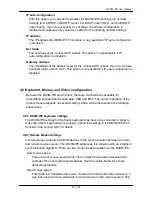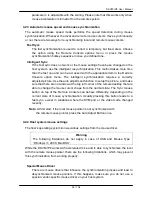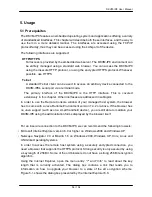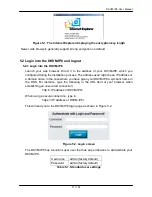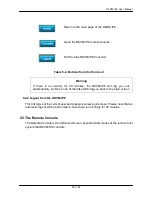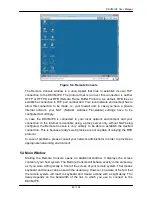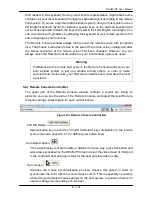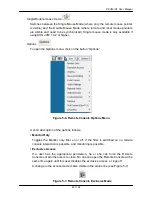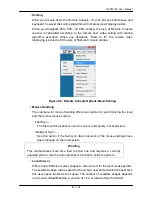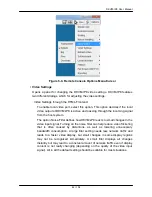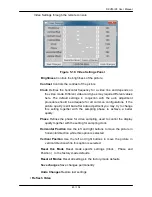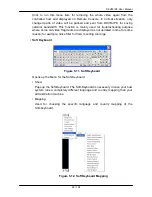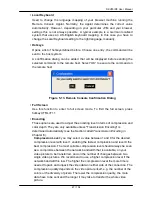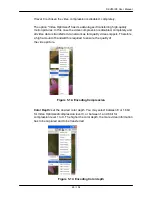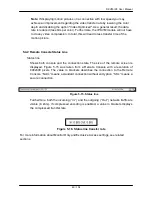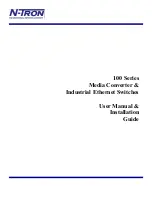
DKVM-IP8 User Manual
36 / 104
5. Usage
5.1 Prerequisites
The DKVM-IP8 features an embedded operating system and applications offering a variety
of standardized interfaces. This chapter will describe both these interfaces, and the way to
use them in a more detailed manner. The interfaces are accessed using the TCP/IP
protocol family, thus they can be accessed using the LAN port of the device.
The following interfaces are supported:
HTTP/HTTPS
Full access is provided by the embedded web server. The DKVM-IP8 environment can
be entirely managed using a standard web browser. You can access the DKVM-IP8
using the insecure HTTP protocol, or using the encrypted HTTPS protocol. Whenever
possible, use HTTPS.
Telnet
A standard Telnet client can be used to access an arbitrary device connected to the
DKVM-IP8's serial port via a terminal mode.
The primary interface of the DKVM-IP8 is the HTTP interface. This is covered
extensively in this chapter. Other interfaces are addressed in subtopics.
In order to use the Remote Console window of your managed host system, the browser
has to come with a Java Runtime Environment version 1.4.2 or above. If the browser has
no Java support (such as on a small handheld device), you are still able to maintain your
DKVM-IP8 using the administration forms displayed by the browser itself.
For an insecure connection to the DKVM-IP8, we can recommend the following browsers:
• Microsoft Internet Explorer version 6.0 or higher on Windows 2000 and Windows XP
• Netscape Navigator 7.0 or Mozilla 1.6 on Windows 2000, Windows XP, Unix, Linux and
UNIX-like Operating Systems
In order to access the remote host system using a securely encrypted connection, you
need a browser that supports the HTTPS protocol. Strong security is only assured by using
a key length of 256 Bit. Some of the old browsers do not have a strong 256 Bit encryption
algorithm.
Using the Internet Explorer, open the menu entry “?” and “Info” to read about the key
length that is currently activated. The dialog box contains a link that leads you to
information on how to upgrade your browser to a state of the art encryption scheme.
Figure 5-1 shows the dialog box presented by the Internet Explorer 6.0.

